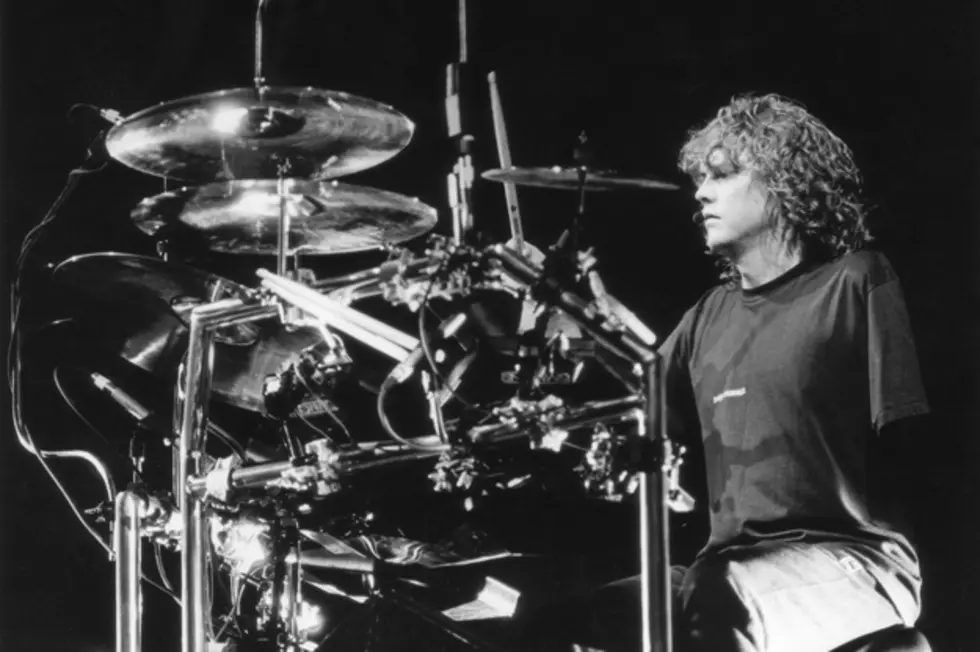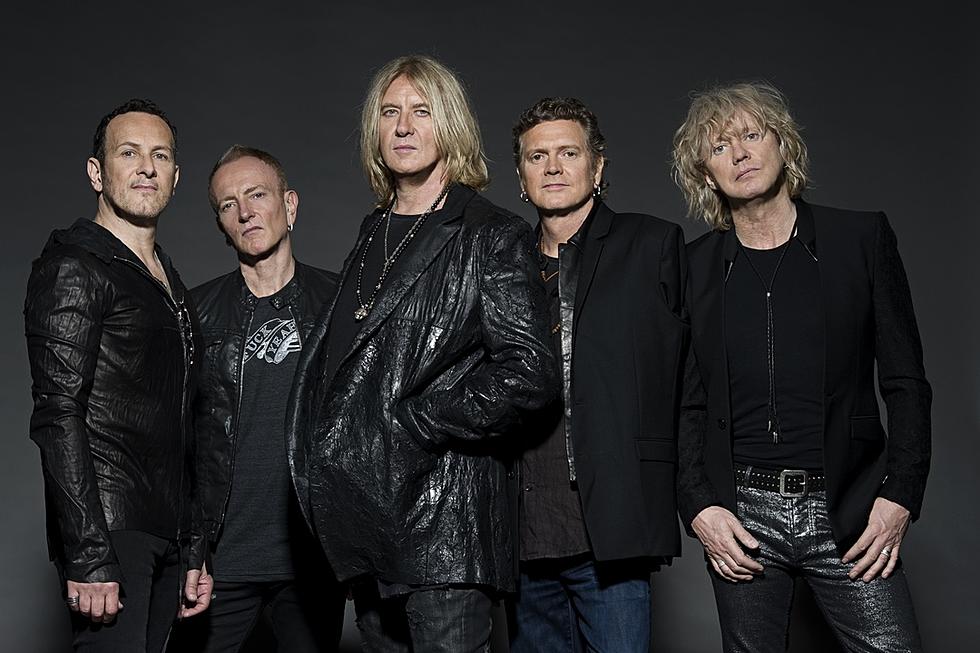
When Def Leppard’s Rick Allen Made an Incredible Comeback
The only thing more awe inspiring than Rick Allen's physical recovery from a car wreck that left him with one arm was the way that the Def Leppard drummer overcame immeasurable mental anguish in order to return to the stage on Aug. 16, 1986.
Allen never allowed himself time for self pity. He'd go on to teach others – including wounded war veterans – how to overcome the obstacles along their path to recovery.
His accident happened on New Year's Eve 1984. Allen was speeding along a country road near Sheffield, England, when misjudged an approaching turn and drove his Corvette through a stone wall into a field. The car flipped several times, eventually ejecting Allen from the driver's seat. He and his girlfriend were wearing seat belts, but Allen says that his wasn't properly fastened.
"I left the car and landed in a field, and I think my arm was left in the car," Allen told the BBC in 1992. He doesn't remember any of this; shock has a way of protecting people from flashbacks. Ironically, going into shock may have saved his life as Allen says it prevented massive blood loss. A midwife who lived nearby was among the first to arrive on the scene, and she packed Allen's arm in ice.
Doctors reattached the left arm, but it had to be removed after gangrene set in. Allen says he was never stung with the sudden realization that he wouldn't drum again. "My mind and my body let me in on this whole thing very gradually," he said. "It wasn't something that just hit me, 'Oh, my arm's gone.' It was over a two- or three-week period that I actually realized that the whole thing was gone."
His brother brought a stereo into his hospital room to lift his spirits. At first, this gesture backfired. The music was only a reminder of what he'd once been able to do. Allen joined Def Leppard at age 15, and now, six years later, sat facing uncertainty at best. One arm was gone; the other was badly broken.
That sense of defeatism didn't last long. "In order to keep me from sliding down the bed, they put this huge piece of foam at the bottom of the bed, which I could sort of press my feet on and push myself up if I needed to," Allen said. "After listening to music for a few days, I realized I could still play quite a lot of the parts from some of my favorite songs just using my feet.
"I think that's one of the things that really helped me is I didn't give myself very much down time," Allen added. "I never gave myself any sort of time to recover. From a mental point of view, I thought it was because I threw myself straight back into work again – and from a work point of view, yeah, I was proving to the rest of the guys in the band that I could do it."
Twenty months later, Rick Allen took the stage for the first time since the accident. There was no easing back into the routine. His first gig was at the Monsters of Rock festival at Castle Donington. The crowd welcomed him back with an enthusiasm that throughout the years has caused Allen to tear up.
Frontman Joe Elliott perhaps best sums up what Allen accomplished: "Most of the time, I've got my back to him, so consequently I'm only ever hearing him – and I forget," he said in a band promotional video. "He does a great job – and one arm, three arms, two arms, who cares you know?"
As for his post-accident technique, Allen admitted in the same interview that "you can't really consult the book of one-armed drummers, you know?" In time, however, he developed an entirely new style of playing.
Allen told UCR that his playing became "a little more deliberate. My left leg is not as accurate as my left hand but over the years, the learning curve has pushed me in a direction that is really cool. I think these days, what I’ve really emphasized is celebrating my uniqueness and the fact that I can do things that other people can’t necessarily do."
Clearly, the comeback worked. Def Leppard completed Hysteria, the album they were working when Allen crashed, and it went on to sell over 20 million copies worldwide. More importantly, Allen discovered the seeds for a dramatic transformation were sown.
"I felt as though I went to a place where I was on hold, and I was weighing out the pros and cons of staying or going," he said in 2005. "It wasn’t a painful experience or anything like that. It was actually the most clear thing that I can perceive. It was a group decision made by the universal consciousness."
There were years of drugs and other forms of self-medication before he accepted this spirituality and later remarried. Allen also started the Raven Drum Foundation, a nonprofit meant to inspire others through their time of tragedy and hopelessness. The foundation began working closely with wounded military members, offering free tickets to every Def Leppard show.
Top 25 New Wave of British Heavy Metal Albums
Why Don't More People Love This Def Leppard Album?
More From WRKI and WINE










